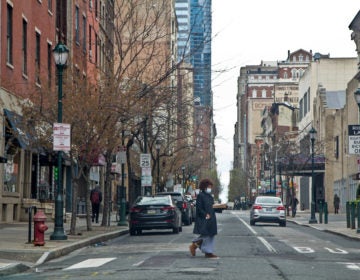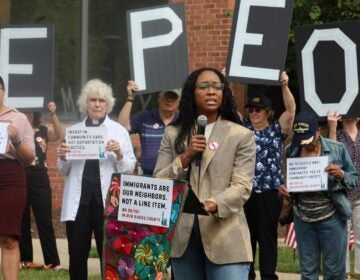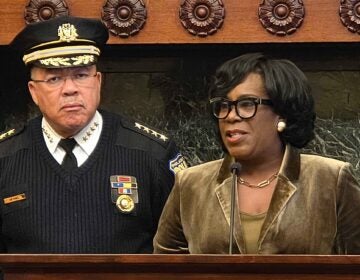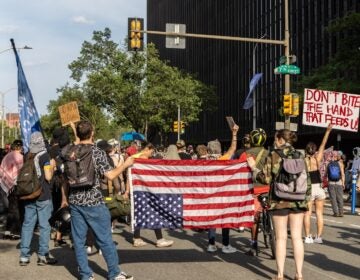ACLU: New stop-and-frisk numbers ‘not what people of Philadelphia deserve’
Nearly a decade after entering into a federal consent decree, civil rights attorneys say Philly cops still conduct too many illegal stops and frisks.
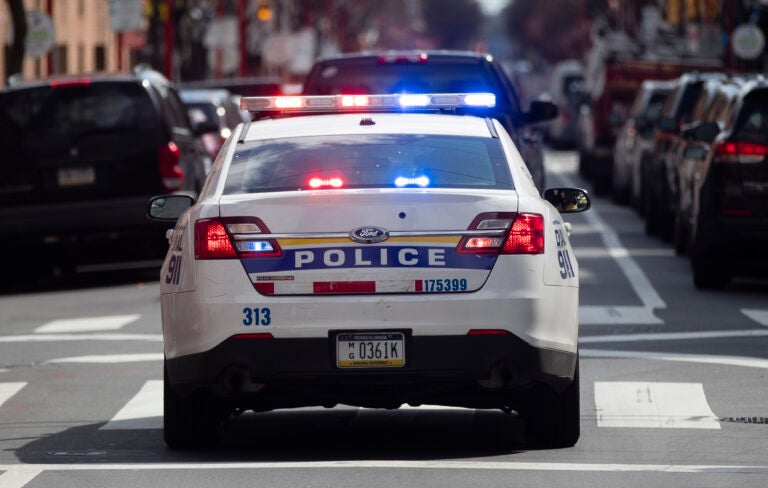
A Philadelphia Police Department cruiser is pictured in this file photo. (AP Photo/Matt Rourke)
Nearly a decade after the Philadelphia Police Department entered into a federal consent decree aimed at reform, city cops are still conducting too many stops and frisks without reasonable suspicion, according to a new report from the ACLU of Pennsylvania.
“The fact that we are still struggling to eliminate illegal stops, that we are looking at such racial disparities, is really disappointing. It’s certainly not what we hoped and honestly it’s not what the people of Philadelphia deserve,” said Deputy Legal Director Mary Catherine Roper.
The report, the tenth since civil rights attorneys began auditing police data under the court-ordered settlement agreement, analyzes a random sample of 3,933 stops made during the second half of 2019.
It finds that 16% of stops in the sample were unlawful, the same percentage found in a random sample from the first half of 2018, the last time the ACLU reported on the city’s compliance with the consent decree.
The percentage of illegal frisks, however, increased compared to 2018.
While the total number of pat downs decreased, the latest report shows that 32% of them were done without reasonable suspicion. An officer must “reasonably believe” that a suspect is armed and dangerous before he or she can frisk them.
During the first half of 2018, the ACLU found that 21% of frisks included in a random sample were illegal, and that officers very rarely seized any contraband, including drugs and guns.
For example, only 30 firearms were recovered, meaning the frisks produced weapons less than 1% of the time.
“We recognize that legitimate stops, especially for quality of life violations, are less likely to disclose contraband than in stops for violent offenses or weapon possession, but such low hit-rates remain troubling,” the authors wrote.
Racial disparities persist
During the second half of 2019, Black residents accounted for 71% of all stops analyzed in the latest report. They were also 50% more likely to be stopped by police without reasonable suspicion than white pedestrians, and far more likely to be stopped for quality of life crimes, including carrying an open container of alcohol.
Police were also more likely to pat down Black residents than white ones. About 1 in 7 stops of Black pedestrians resulted in a frisk. The rate for white pedestrians was 1 in 15.
“The police department will tell you they stop more Blacks because they do more stops in Black neighborhoods because they do more stops where there is more crime. That is only partly true,” said Roper.
The report also finds that Black residents are disproportionately stopped in predominantly white neighborhoods.
In one section of the 9th Police District, which covers parts of Center City, including Rittenhouse Square, Black residents composed 9% of the population, but accounted for 75% of all stops during the second half of 2019.
In another part of the district, Black residents composed 5% of the population, but accounted for 69% of all stops during the same period.
The city has until May 4 to file its response to the racial disparities highlighted by the ACLU.
In its response to the organization’s Fourth Amendment claims, the city points to significant drops in both stops and frisks since the start of the consent decree.
In 2019, there were a total of 76,937 stops — the lowest number during any year since the start of the litigation. At the peak in 2015, there were nearly three times as many stops.
“Along with decreasing the total number of pedestrian stops, 2019 saw historically low percentages of stops made without reasonable suspicion,” the city wrote.
The city was not immediately available for comment. A mayoral spokesman has said the Kenney administration remains committed to “eliminating unconstitutional stops.”
WHYY is your source for fact-based, in-depth journalism and information. As a nonprofit organization, we rely on financial support from readers like you. Please give today.



